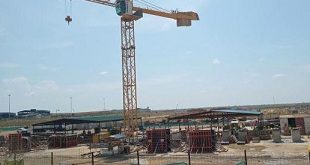Wrapping up deals
Generally, Fayemi says both the upstream and midstream developments on the Lake Albert Development project are going on well. Indeed so much has happened under his stewardship over the last 22 months.
In April, last year, Fayemi saw the government finally choose the Indian Ocean port of Tanga in Tanzania as its preferred route for the $3.55b crude oil export pipeline. Four months later, in August, he received three production licences on behalf of Total E&P Uganda B.V.
At the moment, he is leading his team of negotiators to wrap up a deal which will see Total ramp up its stake in Uganda’s upstream sector from its current 33.33% to 54.9% following Tullow’s decision early this year to farm down 21.57% of its 33.33% of interest in Exploration Areas 1, 1A, 2 and 3A in Uganda to Total E&P Uganda B.V for about $900m.
CNOOC, however, recently notified Tullow that it has exercised its pre-emption rights under the joint operating agreements between Tullow, Total and CNOOC to acquire 50% of the interests being transferred to the French firm on the same terms and conditions that were agreed between Tullow and Total.
Fayemi refuses to give an authoritative timeline and only says, “The joint venture partners are working as hard as possible to make sure that this is finalised as soon as possible.” He immediately delves into the current developments.
“We are all mobilised to make sure that we deliver first oil in 2020 and the machine is in motion.”
That is the target and we are confident that the timeline is achievable but, Fayemi quickly says, it will require collaboration between the joint venture partners and the governments (Tanzania and Uganda) to achieve that target.
Total and its partners are preparing for the development phase, which is expected to usher Uganda into the league of oil producing countries in the world by the end of 2020.There has been renewed vigour in the industry in recent months following recent developments.
In January this year, officials from the governments of Uganda, Tanzania and the three oil firms jointly launched the FEED study for Uganda’s 1445km-long crude oil pipeline being done by the Houston-based Gulf Interstate Engineering at a cost of $11.5m. This study is supposed to be completed by the end of August.
Another FEED study for the central processing facilities for two oilfields to be operated by Total—one at the northern tip of Lake Albert within Murchison Falls National Park and another which is to the East of Lake Albert in Buliisa District— was launched on Feb.14.
The FEED studies are to be used to determine the scope, cost, and scheduled estimates that the oil companies will base upon to make their Final Investment Decision before the end of this year.
Fayemi says Total already has teams that are mobilising in the field with the contractors for the environmental and social impact assessment studies.
“We have also started the resettlement action plan (RAP) process which will effectively lead to land acquisition so that we begin effective project implementation on site.”
Preliminary estimates put the total investment for the project at between $8b and $10b, including oil wells, feeder pipelines and central processing facilities, and a crude oil export pipeline.
Fayemi confirms our perception when he says he has found his close to two years in Uganda “very good and interesting.”
On the flipside, however, there is one clear blemish on his stewardship so far—the internal dissent he faced early this year when close to 100 local staff laid down their tools in protest against “unfair and harsh working conditions.”
The local staff complained that although they had honoured the management’s enforcement of tough deadlines for the benefit of the Total brand, management had refused to act on the employees’ grievances that had been pending since 2013.
The strike which started on Jan.31 followed several months of internal apprehension and grumbling that management had for long tried to contain through reprimand and intimidation. So how did he deal with this issue?
“There were internal discussions and we resolved them amicably and that is the way Total does things,” Fayemi says, without giving away much.
****
 The Independent Uganda: You get the Truth we Pay the Price
The Independent Uganda: You get the Truth we Pay the Price



